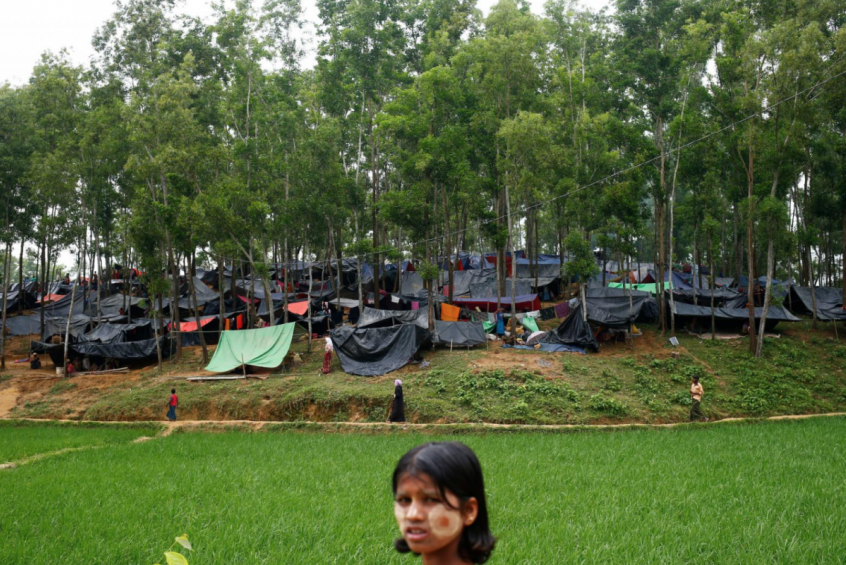Pope Francis is being warned that even mentioning the Rohingya in his upcoming visit to Myanmar and Bangladesh this month will unleash a backlash from nationalist groups.
Catholic leaders in the country admitted they were 'very nervous' about the trip and what the pontiff might say, adding they will be watching his words very carefully. One false move will 'plunge the country into chaos', they warn.

'The Pope's visit is keeping us very anxious, as many things can go wrong,' said Father Mariano Soe Naing, communications director for Myanmar's bishops.
'If the Holy Father in his speech evens mentions the Rohingya, the nationalist groups will respond. This is a historic problem, and we need a lot of time to solve this problem. We cannot just say this or that. That is the reason why Aung San Suu Kyi cannot say anything,' he said after Myanmar's de facto leader faced intense criticism for failing to stand up and protect the Rohingya.
But he said the bishops understood her silence, laying the blame with the military.
'Aung San Suu Kyi has no right to comment on anything. The military has the authority to decide everything,' he told the Catholic News Service. 'The whole world wants to criticize her, wants her to fight against the military in favour of full democracy. But that's a fight she cannot win. She might have the force of the people behind her, but the bloodshed would be terrible. The blood would flow like rivers in this country. The military is not ready to give up easily. She knows that well.'
More than one million Rohingya live in Myanmar, most in Rakhine State, but more than 600,000 have fled to Bangladesh to escape ethnic violence accompanied a brutal military counter-insurgency operation after Rohingya militant attacks on security posts in the Rakhine State.
Following the initial attack by the militant group on August 25, Pope Francis spoke in supoprt of the Rohingya and urged pilgrims at the Vatican in Rome to pray for 'the Lord to save them, to raise up men and women of goodwill to help them, that they may be given full rights'.
But Father Soe Naing said the pontiff's comments caused discontent in Myanmar.
'When the Holy Father said that we should pray for the Rohingya, people were really angry, because it was Burmese police posts that were attacked, and people died. The pope didn't mention the terrorist attacks when he asked people to pray for the Rohingya. Why did he leave out the rest of the people who suffered in this country?' he said.
'Our people do not want to hear the word "Rohingya". We are not allowed to use it in our country. If the Holy Father comes and begins to speak about this conflict, then the nationalists may rise up against him. That is our fear. But we believe that the Holy Father knows what to say and what not to set say. We trust in his wisdom.'
Patrick Loo Tone, president of the Myanmar Council of Churches, said the Pope's visit, and any potential fallout, carries high risks and potential rewards for Protestants as well as Catholics in the country.
'In general, people don't know the difference between Catholics and Protestants, so when the Pope comes it will not just benefit the Catholics, but the whole Christian community. And if something goes wrong, it is not only the Catholics who will suffer,' he said.
'Most Buddhists don't trust the Muslims, and the Muslims don't trust the Buddhists. For the time being, though, both parties trust us Christians to a certain extent. But if we do or say something that appears to favor the Muslims, then the Buddhists will become more suspicious and uneasy about us. We have to be very careful about what we say, or we Christians could be the next target.'
He added all Christians, including non-Catholics, would play a strong role in welcoming the pontiff enthusiastically.
'There are tens of thousands of Catholics who want to come see and hear the Pope, because it's the first time that the Pope has come here. They have asked us to help, and we're opening our churches and other buildings to offer hospitality. And many Buddhists, including some of the big monasteries, are also offering their spaces. Some might see the Pope's visit as possibly negative, but I believe God will make it a positive experience for everyone,' he said.













